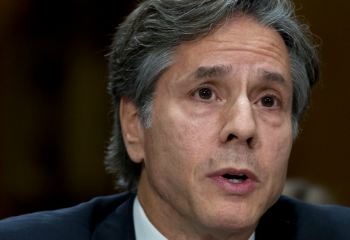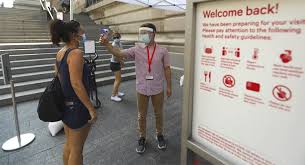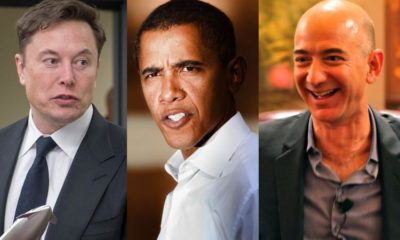World
US not yet cured of racism: Obama

Washington: President Barack Obama used the politically incorrect n-word during an interview to assert that racism persists in the US, including many forms that are not overt, and the nation was not “cured of it”.
“Racism, we are not cured of it. And It’s not just a matter of it not being polite to say nigger in public,” he said in a podcast interview with comedian Marc Maron released Monday. “That’s not the measure of whether racism still exists or not. It’s not just a matter of overt discrimination. Societies don’t, overnight, completely erase everything that happened 200 to 300 years prior,” he said.
The White House insisted that Obama didn’t set out to shock or provoke. His spokesman Josh Earnest said the President’s use of the taboo word was not part of a premeditated strategy to talk about race in a more challenging and overt way.
“I would acknowledge it is understandably notable that the President chose to use this word,” he said. “But the argument that the President is making is one that is familiar to those who have been listening.”
Obama said there has been progress on race relations over the decades, citing his own experience as a young man who was born to a white mother and an African father.
“I always tell young people, in particular, do not say that nothing has changed when it comes to race in America, unless you’ve lived through being a black man in the 1950s or ’60s or ’70s.
“It is incontrovertible that race relations have improved significantly during my lifetime and yours,” Obama said.
But he added that “the legacy of slavery, Jim Crow, discrimination” exists in institutions and casts “a long shadow and that’s still part of our DNA that’s passed on.”
The White House later released a statement saying that this is not the first time the President has used the N-word.
“Truth is he uses the term about a dozen times in Dreams from my Father,” White House Deputy Press Secretary Eric Schultz said.
Echoing comments he made in the immediate aftermath of last week’s horrific massacre at a historic black church in Charleston, South Carolina, Obama also lamented Congress’s lack of action on gun control in the face of a powerful gun lobby.
“It’s not enough just to feel bad. There are actions that could be taken to make events like this less likely. One of those actions we could take would be to enhance some basic common sense gun safety laws,” he said.
“Unfortunately, the grip of the NRA (National Rifle Association) on Congress is extremely strong. I don’t foresee any legislative action being taken in this Congress.”
World
Lockdowns in China Force Urban Communities to Defy Censorship and Vent Frustration Online

Shanghai’s rich middle class is leading a wave of online dissent over the strict and prolonged lockdowns imposed in various parts of the country. Chinese internet censorship is struggling as patience is wearing thin in many urban centers, coming up with creative forms of online protests.
Social Media Posts Revealing Lockdown Tension in Shanghai
Drawn-out lockdowns are nothing new in China as authorities insist with the nation’s zero-Covid policy since the start of the pandemic. Currently over This time around, however, metropolitan areas like Shanghai are increasingly difficult to keep quiet, given that its more than 25 million residents have seen weeks of total isolation along with food shortages and many other service interruptions.
Dozens of towns and reportedly over 300 million Chinese citizens have been affected by lockdowns of different severity. As expected, urban netizens have been most outspoken over their difficulties by finding creative ways to get around state censorship and bans placed on topics, news comments and spontaneous campaigns.
Shanghai residents have been using mobile proxies and hijacking seemingly unrelated hashtags to talk about healthcare issues, delivery failures and the overall severity of their situation. The “positive energy” that the Chinese government wants to transmit during the recent prolonged series of lockdowns does not come naturally to those counting food supplies and online censors are working hard to filter words, trending topics and undesired social media sharing.
WeChat groups and message threads are under constant monitoring. Posts questioning the zero-Covid approach have been quickly deleted, including by leading Chinese health experts like Dr. Zhong Nanshan. Video footage is soon censored and protests and investigations are quickly made to disappear.
Where this has not worked, officials have exposed banners with warnings and outright threats like “watch your own mouth or face punishment”, while drones have been patrolling the city skies. Yet, if anything, this has led to further tensions and unspoken confrontation with Shanghai’s educated and affluent middle class.
Creative Online Solutions Harnessing Civic Energy
Announcements by Chinese social media that they would be publishing the IP addresses of users who “spread rumors” have not helped either. Tech industry research has shown that much of Asia’s tech-savvy population has a habit of using mobile proxies and other privacy tools, quickly finding workarounds to browse the internet freely and talk to the world about the hottest topics.
The sheer volume of forbidden posts is already a challenge for the very censorship system, experts explain. Unable to track all trending hashtags, state workers overlook topics that speak about the US, Ukraine or other popular news. Linking human rights elsewhere to their situation, Chinese online dissidents establish their informal channels and “hijack” the conversation to share personal or publicly relevant information about the Covid suppression in their town.
Sarcastic and satirical posts still dominate. Others hope to evade the censors by replacing words from famous poems or the national anthem. One thing is certain – social media, when harnessed with the right creativity, has proven its ability to mount pressure on the government in even some of the most strictly controlled tech environments like China.























